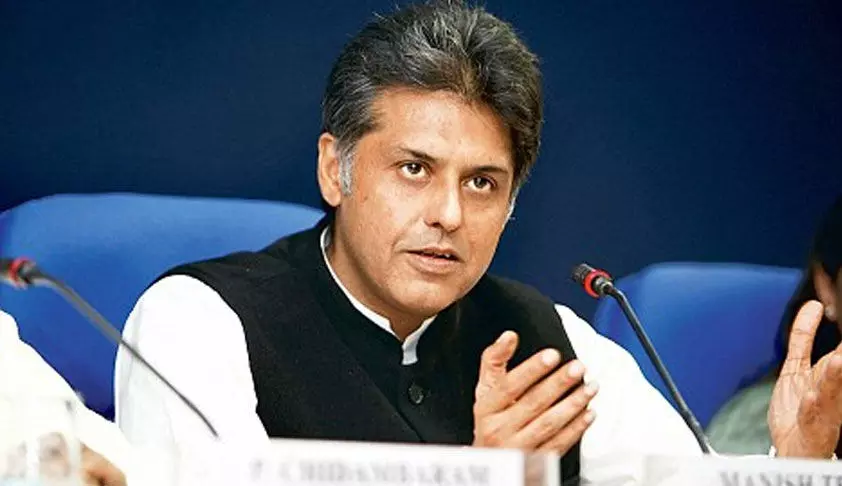
Parliament disruptions, adjournments shouldn't be norm: Congress MP
text_fieldsManish Tewari (file photo)
New Delhi: Congress MP Manish Tewari opined on Sunday that frequent adjournments of the Parliament need introspection on whether it is a legitimate tactic. Resorting to the move must be in an extreme situation and must not turn into a norm, PTI reported.
Talking about the repeated adjournments in the Parliament, Tiwari blamed the government for the same, saying that it is the government's responsibility to run the House. He said that blaming Congress for these adjournments is unfortunate and opportunistic, citing that BJP and its allies had stalled the House when Congress was in power.
Tewari, the MP from Punjab's Anantapur Sahib, told PTI, "I had even suggested in an informal conversation with the Speaker (Om Birla) that as a norm after the government business is over at 6 pm, a discussion under rule 193 on any subject, collectively suggested by the Opposition, should be taken up every working day of Parliament between 6 pm and 9 pm." He added that a similar discussion must be conducted in Rajya Sabha under the concurrent rule.
He said that it would ensure that the government business functions in an uninterrupted manner, and the Opposition is also able to articulate its concerns on the matters before the country. But added that the treasury benches are not too enthusiastic and would rather just "railroad" their own business than allow the Opposition's concerns to be discussed as well, which is unfortunate.
Regarding disruption becoming the norm, over debate in the Parliament, he said, "Parliament as an institution and legislative assemblies collectively have unfortunately become irrelevant to the national discourse of the country now going back a couple of decades." He said that it is mainly because parliamentarians and legislators across parties, across decades and across the country have systematically devalued the institution.
He asked, "What would you think of an institution where disruption is the norm and functioning is the exception? What would you think of the Supreme Court if lawyers were to disrupt its functioning on a regular basis? What would you think of the executive if the secretaries, joint secretaries or other officials go on a disruptive spree on a regular and prolonged basis?"
Since the Monsoon Session started in the Parliament in July 18, both Houses have failed to transact any significant business so far, though the Opposition has pressurized on a debate on price rise and GST on essential items of daily use.
On the Opposition charge that the government is not allowing discussions on key people's issues like price rise and GST on essential food items, Tewari said this is not the first time that a government has a large majority in Parliament. In fact, out of the 17 Lok Sabhas, the governments in 10 enjoyed an overwhelming majority.
However, right up till the late 1980s, even though there was a small opposition, it was invariably also aided and abetted by the conscientious members of the treasury benches who collectively would hold the government to account, he pointed out.
"The 10th Schedule has taken conscience, common sense and constituency imperatives out of the legislative proceeding," Tewari argued.
"It has completely failed in its primary objective to check defections but it has taken the soul of democracy out of the apex democratic institutions of the country. Therefore, there is a need to revisit the 10th Schedule in order to restore democracy in Parliament," he said.
Over and above, what is worrying is that the government not only tries to "squelch" the voice of the Opposition but, more importantly, even the proceedings of Parliament are shown in a "skewed and censored" manner, Tewari alleged.
Asked about the 'unparliamentary words' controversy and the circular over not allowing protests in the precincts of Parliament, he said the "crisis in India's legislative institutions" goes beyond unparliamentary words and any kind of prohibition of protest within the precincts of Parliament.
What these two moves were symptomatic of was a growing tendency to further "emasculate" what little is left of the supreme legislative institution, he said.
Asked about the Opposition unity being in shambles with TMC chief Mamata Banerjee announcing that her party would not support joint vice presidential candidate Margaret Alva in the polls, Tewari said the decision does have implications for the 2024 general elections.
"The opposition should be cognizant of the gravity of the challenge that it confronts, and it needs to put aside both egos and perceptions of political turfs and really focus on 2024 in an extremely serious manner," he said.






